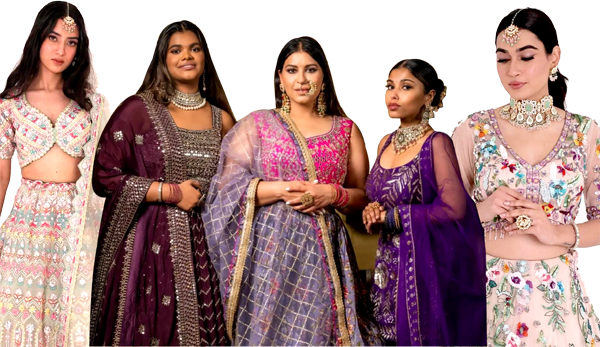What Do the Groom’s Parents Do for an Indian Wedding?
Indian weddings are known for their grandeur, cultural richness, and deeply rooted traditions. While the spotlight often shines on the bride and groom, the families—especially the groom’s parents—play a pivotal role in the festivities. Their involvement spans from the early planning stages to the wedding day rituals, each task steeped in cultural and religious significance. Here’s an overview of what the groom’s parents typically do for an Indian wedding.
1. Planning and Arrangements
Traditionally, the groom’s parents are heavily involved in planning the wedding, particularly in more traditional or arranged marriages. They often work alongside the bride’s family to:
- Help Select the Wedding Venue: Depending on the region and cultural background, the groom’s parents may be involved in choosing the venue for the wedding and related ceremonies, ensuring it aligns with family traditions and values.
- Oversee the Groom’s Wardrobe: The groom’s parents may help in selecting the groom’s wedding attire, which could include a sherwani, turban, or other traditional garments. They ensure that the groom’s outfit aligns with cultural expectations while also being comfortable and regal.
- Guest List Coordination: The groom’s parents take charge of inviting family and friends from their side, ensuring that all relatives and close associates are properly informed about the wedding details. In many Indian weddings, the groom’s family may even host events leading up to the wedding.
2. Sangeet or Pre-Wedding Celebrations
One of the most exciting events before the wedding is the Sangeet, a musical night filled with dancing, music, and festivities. The groom’s parents often:
- Host the Sangeet: In some traditions, the groom’s family may host the Sangeet or Mehendi ceremonies, creating a fun and vibrant atmosphere for both families to bond.
- Participate in Performances: It’s common for the groom’s parents to actively participate in dance performances during the Sangeet, showcasing their enthusiasm and joy for the upcoming wedding.
3. The Baraat
One of the most iconic aspects of an Indian wedding is the Baraat, where the groom arrives at the wedding venue in a lively procession, often on horseback or in a luxury car, accompanied by music, dancing, and celebrations. The groom’s parents have a special role during this event:
- Lead the Baraat: Traditionally, the groom’s parents are part of the front of the procession, dancing and celebrating as their son is taken to meet his bride. This is a time for the groom’s family to showcase their joy and excitement.
- Welcome the Bride’s Family: Upon arrival at the wedding venue, the groom’s parents are typically greeted by the bride’s family in a ceremony called Milni, where the two families exchange garlands and gifts, symbolizing the union of two families.
4. Ceremonial Roles
The groom’s parents play important roles during the wedding rituals, which vary based on religious traditions. Common responsibilities include:
- Performing Rituals: In Hindu weddings, for example, the groom’s parents may participate in key rituals such as the Kanyadaan, where they symbolically accept the bride into their family. They may also be involved in Havan(the sacred fire ritual) and other significant parts of the wedding.
- Blessing the Couple: The groom’s parents, along with the bride’s parents, bless the couple during various stages of the ceremony, offering them good fortune, health, and happiness for their married life.
5. Hosting the Reception
In many Indian weddings, the groom’s family takes the lead in hosting the wedding reception, which takes place after the main ceremony. During the reception:
- Welcoming Guests: The groom’s parents act as hosts, welcoming guests from both sides of the family and ensuring everyone feels comfortable and well taken care of.
- Thanking Guests: In many cases, the groom’s parents may give a speech or make a toast, thanking everyone for attending and celebrating the union of their son and his bride.
6. Post-Wedding Rituals
After the wedding, the groom’s parents are responsible for several post-wedding traditions, which mark the bride’s formal entry into their family. These traditions vary based on region, but common customs include:
- Griha Pravesh: This is a ceremony where the bride is welcomed into the groom’s home for the first time. The groom’s parents often lead this ritual, which may include lighting a lamp or performing a small prayer to ensure the bride’s smooth transition into her new family.
- Hosting Relatives: In the days following the wedding, the groom’s parents may host relatives who have traveled from far and wide to attend the wedding, organizing meals and celebrations to continue the joyous atmosphere.
7. Financial Contributions
In traditional settings, the groom’s family may contribute financially to the wedding. While the extent of this varies by family and region, common financial responsibilities might include:
- Contributing to Wedding Costs: The groom’s parents may share or bear the cost of the venue, catering, or other expenses, especially if the event is jointly planned.
- Gifting the Bride: In some cultures, the groom’s parents present gifts or jewelry to the bride as she joins their family, symbolizing their acceptance and blessings.
8. Emotional Support
Finally, the groom’s parents offer emotional support and guidance to the groom during this momentous time. Whether it’s providing advice on married life or simply being there for their son, their role is essential in helping him transition smoothly into married life.
Final Thoughts
The groom’s parents play a key role in ensuring that an Indian wedding runs smoothly, while also helping to uphold traditions and welcoming the bride into their family. Their involvement, from pre-wedding celebrations to post-wedding rituals, reflects the significance of family in Indian culture. Whether it’s through hosting events, performing rituals, or offering emotional support, the groom’s parents are vital in making the wedding a joyous and meaningful occasion.


